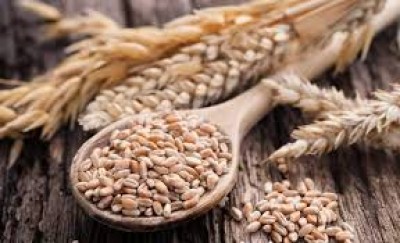The Ministry of Agriculture proposes to introduce new restrictions on grain exports - experts comment

The Ministry of Agriculture proposes to introduce a number of restrictions on the export of wheat, rye, barley and corn, follows from the draft government decree published on November 11 on regulation.gov.ru. An export quota will be established: from February 15 to June 30, no more than 15 million tons can be shipped outside the countries of the Eurasian Economic Union (EAEU). In addition, this quota will be distributed between companies on a historical basis, i.e. based on data customs on export shipments for the first half of the season (July - December). Exporters will have to obtain a license from the Ministry of Industry and Trade when shipping outside the EAEU countries.
Despite the task of increasing grain exports, the Ministry of Agriculture considers it necessary to provide for domestic needs, says the explanatory note to the draft resolution. The establishment of quotas will limit the growth of domestic prices for basic grain crops, which could lead to an increase in production costs and consumer prices for products of the milling, cereals, bakery and meat and dairy industries.
Grain production this year will amount to 127.5 million tons, according to the explanatory note. This result will be the second after the record-breaking 2017, when 135.5 million tons were harvested.The US Department of Agriculture expects Russia to once again become the leader in wheat supplies to the world market, exporting 39.5 million tons per season from July 2020 to June 2021 The total export of major grains at the end of the season should not exceed 49.5 million tons, the Russian Ministry of Agriculture expects.
According to IKAR, the price of 3rd class milling wheat in Russia is now at a record level in history - 17,725 rubles. for 1 ton, says Dmitry Rylko , general director of IKAR . It is 48% higher than a year ago. The previous price record was set at the beginning of May 2020 - 16 165 rubles. for 1 t.
The current season is unique: despite the high harvest, the demand for grain in the world market is colossal, which is why prices inside the country are rising, says Eduard Zernin , chairman of the Union of Grain Exporters . The Ministry of Agriculture "acts adequately to the current situation": the proposed measures will help stop the rise in prices, he said. The historical principle of allocating quotas and the subsequent licensing of export transactions will allow us to weed out non-working companies from the market. The principle of distribution of quotas will be transparent and quotas between market participants will be confirmed by the FCS data, he expects. The new principle of quota distribution is unlikely to have a strong impact on the market: its total level of 15 million tons corresponds to the export potential of the season, Rylko said.
The largest exporters of grain, as of the end of May 2020, were Trading House Rif with a 13% share, Mirogroup (9%), Aston (7%), Glencore (7%), etc. previously reported by "Rusagrotrans". The Ministry of Agriculture wants to get maximum control over supplies abroad and exporters, says one of the market participants. In his opinion, industry leaders can maintain their positions, but small companies run the risk of not meeting the licensing requirements and leaving the market. The historical principle will make it possible to ensure a fair distribution of quotas, taking into account the real capabilities of exporters, said the representative of the Ministry of Agriculture.
Control over the export of grains in Russia began to tighten after Dmitry Patrushev took over as Minister of Agriculture in 2018. In early 2019, the department informally asked exporters to slow down grain exports in order to meet the figure planned by the Ministry of Agriculture, Kommersant reported. Later, traders told Vedomosti about the secret distribution of quotas among grain exporters. The reason was fears that too much would be exported from the country, and the harvest in 2018 was small. Officially, the press service of the agricultural department denied this. At the end of 2019, Patrushev, in an interview with Kommersant, acknowledged the need for restrictions: the department cannot allow strong fluctuations in prices on the domestic market and a shortage of grain for the needs of livestock breeders or millers. “Since we live in a market economy, under certain conditions, our respected exporters may want to export everything. Of course, we cannot agree to this, ”the minister said. Then he denied the need to assign quotas to individual companies. From April 1 to June 30, 2020, a quota was established for the total permissible export from the country: during this period, it was allowed to send only 7 million tons outside the EAEU.
Any restriction has a negative impact on the market, says Vladimir Petrichenko , general director of the analytical company Prozerno . For example, the export embargo in 2010 and the introduction of export duties in 2015–2016 led to a decrease in the income of Russian exporters: after them, Russia was perceived on the world market as an unreliable supplier and agreed to buy grain only at a discount. In the near future, on the world market, the news about restrictions on exports from Russia will create excitement and nervousness and prices will start to rise, the expert said.

Comments (0 posted)
Post your comment